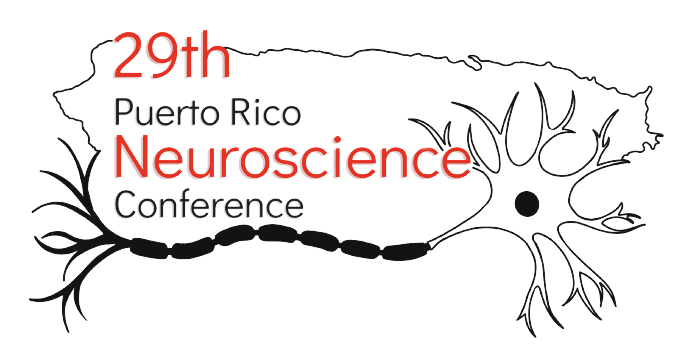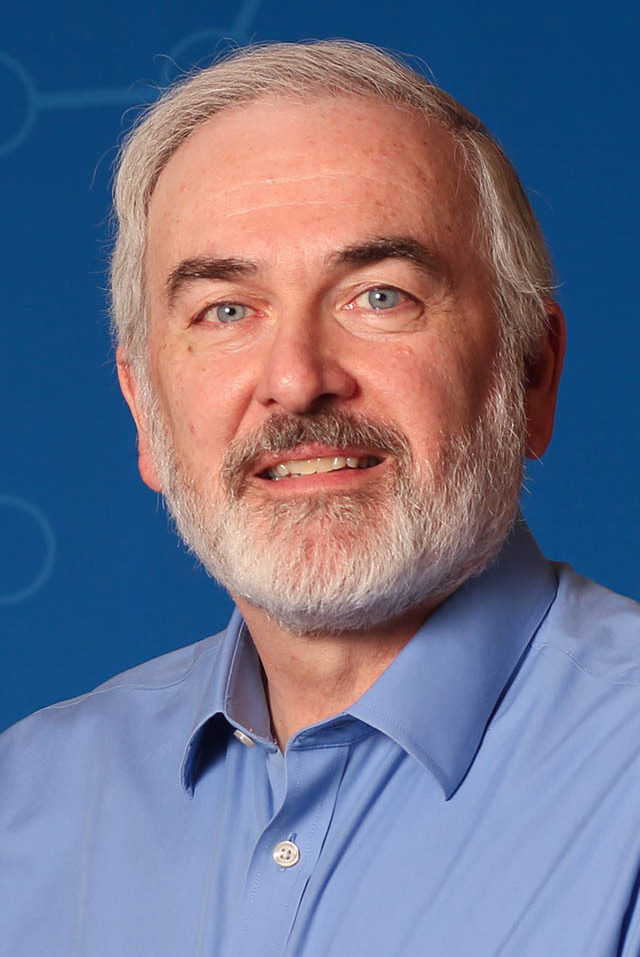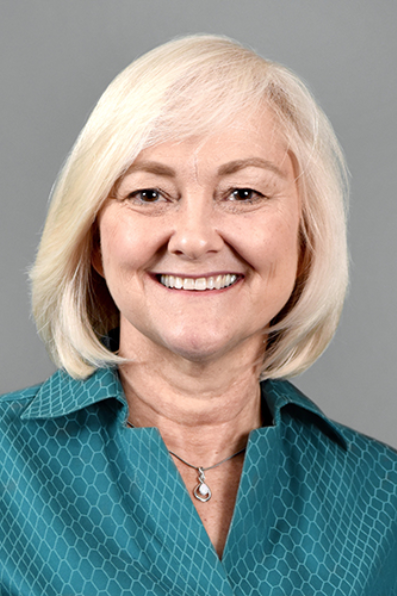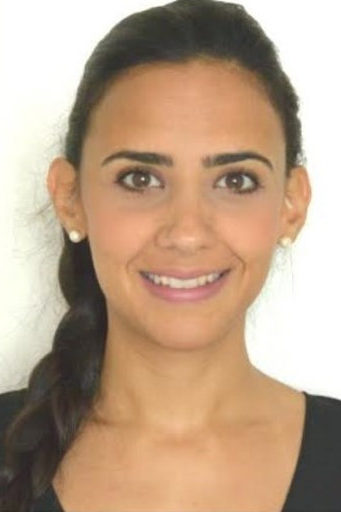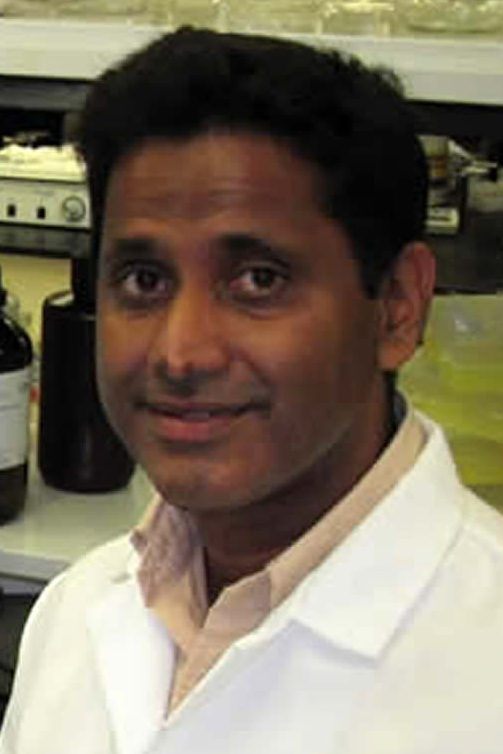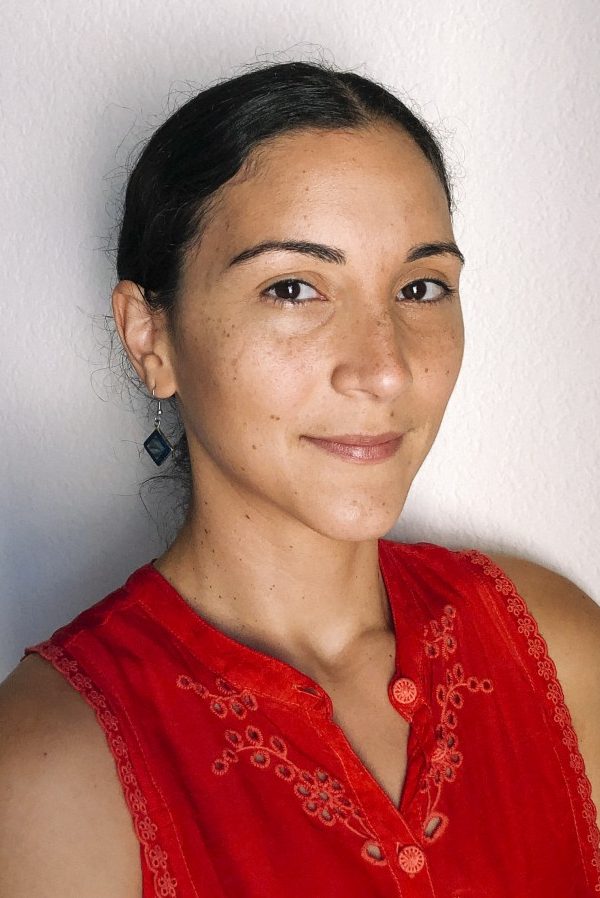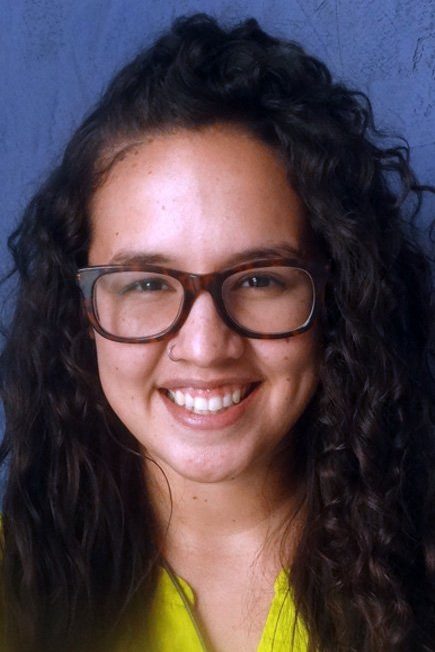
The 29th Puerto Rico Neuroscience Conference

Meet the Speakers – Biosketches
Distinguished Speakers
Dr. Adrian R. Krainer is the St. Giles Foundation Professor at Cold Spring Harbor Laboratory and Deputy Director of Research at the CSHL Cancer Center. He received a Ph.D. in Biochemistry from Harvard University in 1986, working with Prof. Tom Maniatis on pre-mRNA splicing mechanisms. He continued his research on splicing as a Cold Spring Harbor Fellow, mentored by Dr. Richard J. Roberts, and joined the faculty at Cold Spring Harbor in 1989. In addition to studying RNA splicing mechanisms, regulation, and dysfunction in disease, his laboratory is engaged in the development of mechanism -based targeted therapies to correct or modulate alternative splicing in genetic diseases and cancer. This work has resulted to date in 219 publications and 10 issued patents. In collaboration with Ionis Pharmaceuticals and Biogen, Dr. Krainer’s laboratory developed nusinersen (Spinraza), which corrects the splicing defect in the SMN2 pre-mRNA and became the first approved therapy for spinal muscular atrophy, a motor-neuron disease. Dr. Krainer is a co-founder, Director, and Chair of the SAB of Stoke Therapeutics. He was elected to the National Academy of Sciences, the National Academy of Medicine, the National Academy of Inventors, and the American Academy of Arts & Sciences. Recent awards include the 2019 Life Sciences Breakthrough Prize (shared with Dr. Frank Bennett), the 2019 Lifetime Achievement Award of the RNA Society, the 2019 International Prize for Translational Neuroscience (shared with Dr. Richard Finkel), the 2020 Takeda Pharmaceuticals & NY Academy of Sciences Innovators in Science Senior Scientist Award in Rare Diseases, the 2020 Ross Prize in Molecular Medicine (Feinstein Institute), the 2021 Wolf Prize in Medicine (shared with Drs. Joan Steitz and Lynne Maquat), and the 2021 Gabbay Award in Biotechnology & Medicine (Brandeis University, shared with Dr. Frank Bennett).
Title: mRNA-Targeted Therapies for Neurological Disorders
Hosts: Emmanuel A. Cruz, Ph.D. , Ponce Health Sciences University & Zaira Mateo, Ph.D. , Pontifical Catholic University of Puerto Rico
Janet Neisewander (she/her) is a Professor in the School of Life Sciences at Arizona State University and the Director of the Workforce Inclusion in Neuroscience through Undergraduate Research Experience (WINURE) Program. She received her B.S. in Biology and Psychology from Rockford University and her M.S. and Ph.D. degrees in Behavioral and Neural Studies from the University of Kentucky. She then received post-doctoral training in Pharmacology and Psychiatry at the University of Pennsylvania. Her research is aimed at understanding the biological risk factors for substance use disorders and the neural mechanisms of drug craving using rodent drug self-administration models. Her work has been funded by the National Institute on Drug Abuse for over 30 years and she has published over 100 research articles. She currently serves on the Editorial Boards for the International Journal of Neuropsychopharmacology and Psychopharmacology, and she has served on numerous grant review panel for NIH. Dr. Neisewander is a strong advocate of Diversity, Equity, and Inclusion and is a recipient of the Society for Neuroscience Bernice Grafstein Award for Outstanding Accomplishments in Mentoring.
Title: Social and environmental impacts on the neural mechanisms of substance use disorders
Host: Carmen S. Maldonado-Vlaar, Ph.D. , University of Puerto Rico, Río Piedras
Dr. Maria Montiel-Gonzalez a native from Maracaibo, Venezuela moved to Puerto Rico to pursue her undergraduate studies at the Universidad del Sagrado Corazon. Following this, she obtained her Ph.D. from the Department of Biochemistry of the University of Puerto Rico at the Medical Sciences Campus under the supervision of Dr. Joshua Rosenthal at the Institute of Neurobiology in Old San Juan, Puerto Rico. During her doctorate she published several pioneering studies on site-directed RNA editing using a novel approach to direct the catalytic activity of human ADAR2 to specific adenosines within the RNA. As a research scientist, she continued developing this promising therapeutic tool adapting the system for viral delivery at the Marine Biological Laboratory at Woods Hole, Massachusetts. This work was patented by the University of Puerto Rico, and it has been licensed by two major RNA editing companies located in Cambridge, Massachusetts. Currently she works as a Senior Scientist at Beam Therapeutics landing her expertise to lead the platform of site-directed RNA Editing.
Title: Advancements on RNA editing therapeutics
Hosts: Mark Miller, Ph.D. , Institute of Neurobiology & Annabell Segarra, Ph.D. , University of Puerto Rico, Medical Sciences Campus
Dr. Salim Merali received his BS, MS, and PhD degrees in Biochemistry from The City University of New York. While completing his doctoral program, Dr. Merali joined New York University (1992-2005) to work on drug development on opportunistic fungal pathogens in AIDS (Pneumocystis). He also developed state of the art technology in Proteomics and Metabolomics. He joined Temple University School of Medicine (2005-2013) as Associate Professor of Biochemistry, The Fels Institute of Cancer Research and Molecular Biology, and Director of the Proteomics Core Facility. Dr. Merali joined The School of Pharmacy in November 2013. He is an expert in the study of Pneumocystis infection and the use of Sadenosylmethionine as a marker for monitoring infection. He has been a key liason for translational medicine research with regards to teaching and supervising infectious disease fellows and surgical residents. He has vast expertise in Proteomics and Metabolomics applied to diagnostic medicine in COPD, cancer, Pneumocystis, and neuroAIDS. He is the principal author of seven patents. He is also the principal author or co-author of over sixty publications, and two book chapters. He has also been a member of numerous NIH study sessions and has been invited to many lectureships.
Title: Novel therapeutic approach for activating antioxidant response in Alzheimer’s disease
Host: David Rivera, Ph.D. , Universidad Central del Caribe, School of Medicine
Panel: Women in Neuroscience | Speakers – Biosketches
Dr. Maria Montiel-Gonzalez a native from Maracaibo, Venezuela moved to Puerto Rico to pursue her undergraduate studies at the Universidad del Sagrado Corazon. Following this, she obtained her Ph.D. from the Department of Biochemistry of the University of Puerto Rico at the Medical Sciences Campus under the supervision of Dr. Joshua Rosenthal at the Institute of Neurobiology in Old San Juan, Puerto Rico. During her doctorate she published several pioneering studies on site-directed RNA editing using a novel approach to direct the catalytic activity of human ADAR2 to specific adenosines within the RNA. As a research scientist, she continued developing this promising therapeutic tool adapting the system for viral delivery at the Marine Biological Laboratory at Woods Hole, Massachusetts. This work was patented by the University of Puerto Rico, and it has been licensed by two major RNA editing companies located in Cambridge, Massachusetts. Currently she works as a Senior Scientist at Beam Therapeutics landing her expertise to lead the platform of site-directed RNA Editing.
Dr. Guzmán-Vélez was born and raised in Puerto Rico. She completed a bachelor’s degree in Psychology at the University of Puerto Rico-Río Piedras and her doctorate in clinical psychology, with a specialization in neuropsychology, at the University of Iowa in 2016. After she completed her PhD, Dr. Guzmán-Vélez worked as a postdoctoral fellow in the Multicultural Alzheimer Prevention Program directed by Dr. Yakeel Quiroz at the Massachusetts General Hospital (MGH) and Harvard Medical School. She also worked as a clinical fellow between 2016 and 2018 at the MGH Multicultural Neuropsychology Program (MUNDOS) conducting neuropsychological assessments to underrepresented minorities. Her research as a postdoctoral fellow focused on identifying tests that are sensitive to early pathological changes in familial AD and that can reliably differentiate individuals in the preclinical stage of AD from adults with no genetic predisposition for AD, and using neuroimaging techniques to measure changes in functional brain connections in preclinical AD. She is now an Instructor at Harvard Medical School where she has extended her research to investigate lifestyle factors and mechanisms that can protect against the onset of cognitive symptoms associated with neurodegenerative disorders, particularly AD. She is also the Principal Investigator of a clinical trial for long-COVID. In addition, she is a clinical neuropsychologist at the MGH Multicultural Assessment and Research Program. Dr. Guzmán-Vélez has authored over 30 research articles in peer-reviewed journals and has been the recipient of multiple research grants and awards. Dr. Guzmán-Vélez is also a strong advocate for increasing the representation of women and minorities in STEM, and is the co-director of the Sagrado-MIT Neuroscience Precollege Program.
Claudia Lugo-Candelas, Ph.D., is a licensed clinical psychologist specializing in the perinatal programming of risk and resilience for neurodevelopmental disorders. She obtained a B.A. from the University of Puerto Rico, Rio Piedras, a Ph.D. in clinical psychology from the University of Massachusetts, Amherst, and completed her clinical internship at the NYC Health + Hospitals/Lincoln. Dr. Lugo-Candelas completed a postdoctoral research fellowship in the Child and Adolescent Psychiatry Division in 2018. That same year she joined the faculty and in 2020 was named the Estelle P. Bender, MD VP&S ’68 and T. Richard Fishbein Scholar in Child and Adolescent Psychiatry. Dr. Lugo-Candelas’ overarching research interest is to better understand the early development of inhibitory control difficulties, particularly within developmental disorders such as ADHD. Her mission is a two-fold. First, she uses MRI methodologies including infant and toddler neuroimaging to examine how exposures and experiences (e.g., prenatal maternal inflammation, air pollution exposure, maternal stress, adversity) during the perinatal period place offspring at risk for inhibitory control disorders. However, Dr. Lugo-Candelas aims to go beyond identifying early risk to elucidate the protective factors in early childhood (i.e., family cohesion, social supports) that prevent children from entering less positive developmental pathways. She is particularly committed to understanding the exposures and experiences that are most relevant to communities that are minoritized, underserved, and underrepresented. Her work is funded by the NIH, NARSAD, and various Columbia University pilot awards. Most importantly, Dr. Lugo-Candelas strongly believes diversity and equity are indispensable to the development of sound science and public health. She is an advocate for increasing access to higher education and increasing the representation of minoritized communities within the STEM fields, psychiatry and neuroscience included. She works with a number of non-profit organizations and serves as a mentor to high school and undergraduate students.
